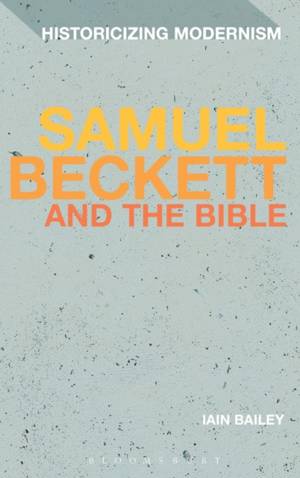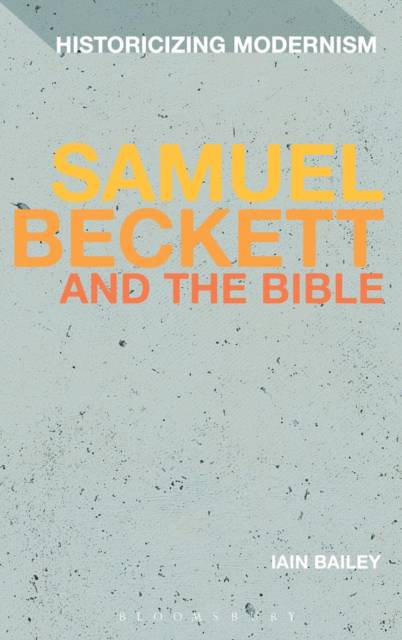
- Retrait gratuit dans votre magasin Club
- 7.000.000 titres dans notre catalogue
- Payer en toute sécurité
- Toujours un magasin près de chez vous
- Retrait gratuit dans votre magasin Club
- 7.000.0000 titres dans notre catalogue
- Payer en toute sécurité
- Toujours un magasin près de chez vous
296,95 €
+ 593 points
Format
Description
From Waiting for Godot to such later novels as Ill Seen, Ill Said, the work of Samuel Beckett is filled with Biblical references. Samuel Beckett and the Bible re-appraises the relationships between Beckett's work and the Bible, exploring both as objects of history, matter and memory. Iain Bailey ranges across the Beckett oeuvre to examine how the Bible has come to be regarded as a book of unique significance in his work, offering innovative readings of intertextuality and influence in both published and archival writings. Beckett's Bibles, the book demonstrates, are thoroughly material, as significant for their involvement in histories of education, the family, common knowledge and canon-formation as for what they have to say about God, hope and salvation. The book explores Beckett's uneasy forms of memory, materiality, language and history to assess how far and in what ways the Bible matters in his work, and why Beckett's voice 'harps, but no worse than Holy Writ.'
Spécifications
Parties prenantes
- Auteur(s) :
- Editeur:
Contenu
- Nombre de pages :
- 208
- Langue:
- Anglais
- Collection :
Caractéristiques
- EAN:
- 9781780936888
- Date de parution :
- 27-02-14
- Format:
- Livre relié
- Format numérique:
- Genaaid
- Dimensions :
- 156 mm x 234 mm
- Poids :
- 476 g

Les avis
Nous publions uniquement les avis qui respectent les conditions requises. Consultez nos conditions pour les avis.






